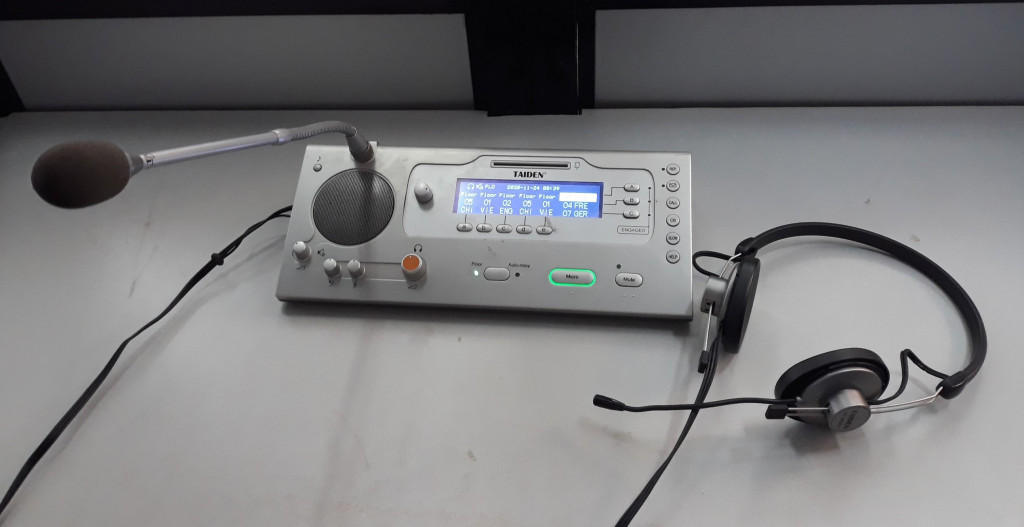In a globalized world where communication across languages is essential, Remote Simultaneous Interpretation (RSI) has emerged as a game-changing solution. Whether you’re hosting international conferences, webinars, or hybrid meetings, RSI ensures that language is no longer a barrier to participation. Interpretation Services have evolved far beyond the traditional booth-and-headset model, embracing digital transformation to meet the demands of a fast-paced, interconnected world.
What Is Remote Simultaneous Interpretation?
Remote Simultaneous Interpretation is a process where interpreters translate spoken language in real-time from a remote location. Instead of being physically present in a conference room or interpretation booth, interpreters work via specialized online platforms. Attendees listen to the interpreted content through their devices, seamlessly receiving the message in their preferred language almost instantly.
The “simultaneous” aspect means the interpreter listens to the speaker and renders the translation in another language with only a few seconds of delay. Unlike consecutive interpretation, where the speaker pauses for the interpreter to catch up, RSI allows for a fluid, uninterrupted flow of conversation.
Why RSI Is Gaining Popularity Worldwide
Several factors have contributed to the rapid rise of RSI as a preferred method for multilingual communication:
- Accessibility and Reach
RSI eliminates geographical constraints. Whether participants are in Tokyo, Paris, or Buenos Aires, they can join the same event and understand the conversation in real-time. This global reach is crucial for multinational corporations, NGOs, and institutions. - Cost-Effectiveness
Traditional interpretation often requires flying in interpreters, renting booths, and setting up soundproof equipment. RSI cuts down these logistical expenses, making interpretation more affordable and scalable. - Health and Safety
The COVID-19 pandemic forced many industries to adopt remote solutions. RSI proved invaluable in enabling cross-language communication during lockdowns and continues to be a safe alternative to in-person setups. - Flexibility
Interpreters can be scheduled for short sessions, last-minute events, or niche language pairs. This adaptability is particularly useful for legal proceedings, online education, and medical webinars.
The Technology Behind RSI Platforms
RSI wouldn’t be possible without robust technological infrastructure. Here are some key components that make it all work:
Specialized Platforms
Platforms like Interprefy, Kudo, and Zoom with interpretation add-ons allow interpreters to work remotely while ensuring low latency and high audio quality. These platforms provide interpreters with access to the speaker’s audio and video feed, as well as a chat feature for technical support.
High-Speed Internet
Stable internet connections are non-negotiable for RSI. Both interpreters and listeners require high bandwidth to prevent lags, audio dropouts, or disconnections that can compromise communication.
Headsets and Microphones
Professional-grade headsets and microphones are essential for delivering and receiving clear audio. Background noise or poor sound quality can render interpretation ineffective, so equipment matters.
Redundancy Systems
Reliable RSI platforms offer backup solutions in case of technical failures. These include support staff, co-interpreters ready to step in, and fallback internet connections to ensure continuity.
Challenges RSI Still Faces
While RSI is transformative, it’s not without its challenges:
Cognitive Load on Interpreters
Interpreting remotely can be more exhausting than in-person interpretation. Interpreters must concentrate intensely without the benefit of non-verbal cues and physical presence. This mental strain makes adequate breaks and team support vital.
Security and Confidentiality
Certain meetings, such as legal proceedings or corporate strategy sessions, require a high level of confidentiality. Ensuring data encryption and compliance with privacy regulations is critical when using RSI platforms.
Technological Barriers
Not all users are tech-savvy. Some participants might struggle with logging in, switching language channels, or fixing audio issues. User-friendly interfaces and proactive tech support can help mitigate these issues.
Language Nuance and Cultural Sensitivity
RSI platforms transmit words, but understanding culture-specific idioms, humor, or emotion still requires experienced interpreters. Technology assists, but human intuition remains irreplaceable.
How to Make the Most of RSI
Organizations planning to use RSI should take proactive steps to ensure its success:
Prepare Your Speakers and Interpreters
Provide interpreters with glossaries, speaker bios, and context in advance. Speakers should be briefed to speak clearly, avoid overlapping dialogue, and use microphones properly.
Test Everything in Advance
Schedule dry runs to test the platform, internet connectivity, and audio equipment. Troubleshooting ahead of time reduces the risk of issues during live events.
Choose the Right Platform
Not all RSI platforms are created equal. Consider your needs: number of participants, languages required, and event type. Choose a platform that matches your scale and provides responsive support.
Invest in Quality Interpretation
Cutting costs on interpreters can lead to poor communication and misinterpretation. Hire professionals with experience in your field to ensure accuracy and cultural appropriateness.
Encourage Feedback
After your event, gather feedback from both interpreters and participants. Understanding what worked and what didn’t will help improve future sessions.
Remote Simultaneous Interpretation is not just a workaround for physical distance—it represents the future of multilingual communication. With the right technology, preparation, and human expertise, RSI can bridge language gaps efficiently and inclusively. As organizations increasingly operate across borders, RSI empowers them to speak—and be heard—globally.



































